OneFootball
Dima Markova·12 October 2017
There is only one ... Hristo Stoichkov
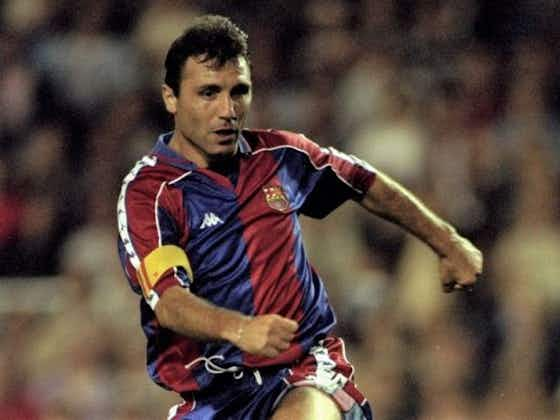
In partnership with
Yahoo sportsOneFootball
Dima Markova·12 October 2017

The 90s were the most divisive decade in Bulgaria’s modern history.
Defined by corruption, over-inflation and makeshift-politics, it was a time when you were given food coupons, but the food was never enough. It was a time when even if you had money, there was nothing in the shops for you to buy.
People queued for a loaf a bread for an entire day, whilst angry sign-brandishing Bulgarians were spilled out on the streets of the country in protest of the sacrifices they were forced to make in the name of current reforms.
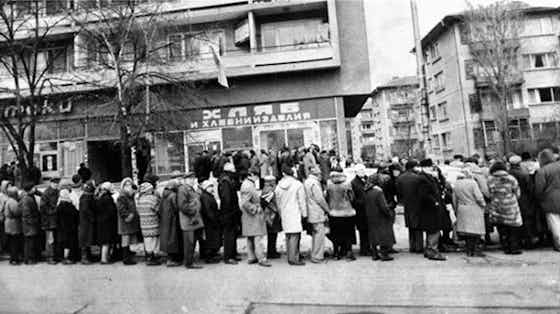
I remember very little of this.
But somewhere in the misty cloud of my childhood memories sits the summer of 1994. It was a couple of weeks after my fifth birthday and I was living in Sofia with my family. Bulgaria was going through a difficult political, economic and social transition and … the World Cup was on.
USA ‘94 gave my entire nation a reason to unite and a chance to be happy. It gave us purpose to believe that we will all live a better life one day.
And most of all, it gave us our very own national hero: Hristo Stoichkov.
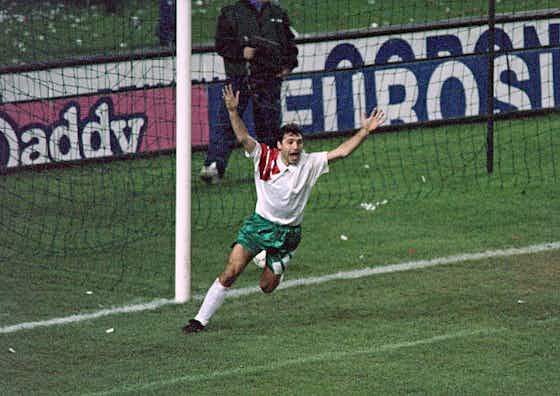
The Raging Bull, The Dagger (Камата), or The Gunslinger (El Pistolero), Hristo (Chris in English) Stoichkov was a star way before my five-year-old self joined thousands in chanting his name on the streets of Sofia.
Born in 1966 in Bulgaria’s second largest city, Plovdiv, Hristo’s footballing career started in his hometown club, Maritsa Plovdiv at age 11.
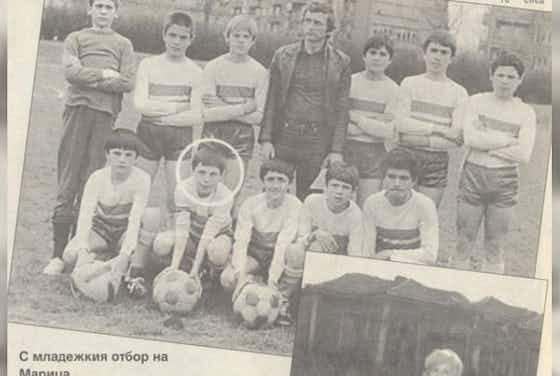
In 1982, he moved to Hebros in the neighboring town of Harmanli, where he scored 14 goals in Bulgaria’s third league.
At age 19 and already known for his shocking temper and gigantic ego (Zlatan ain’t got nothing on him), Stoichkov was banned from playing at CSKA in his first season at the club.
During the 1985 Bulgarian Cup Final between CSKA and Levski (subjectively: Sofia’s best team), Stoichkov (and another five players) got in to a massive fight and he was hit with a lifelong ban. While this may seem draconian to us, it was a standard punishment under the Soviet Union and it was later reduced to a year-long suspension.
“There are only two Christs … and the other one is in heaven.”
Fast forward four years, Stoichkov is still in CSKA and has been named top goalscorer in Europe for the 1989/90 season, receiving the European Golden Shoe (now Golden Boot) for his 38 goals in 30 league games.
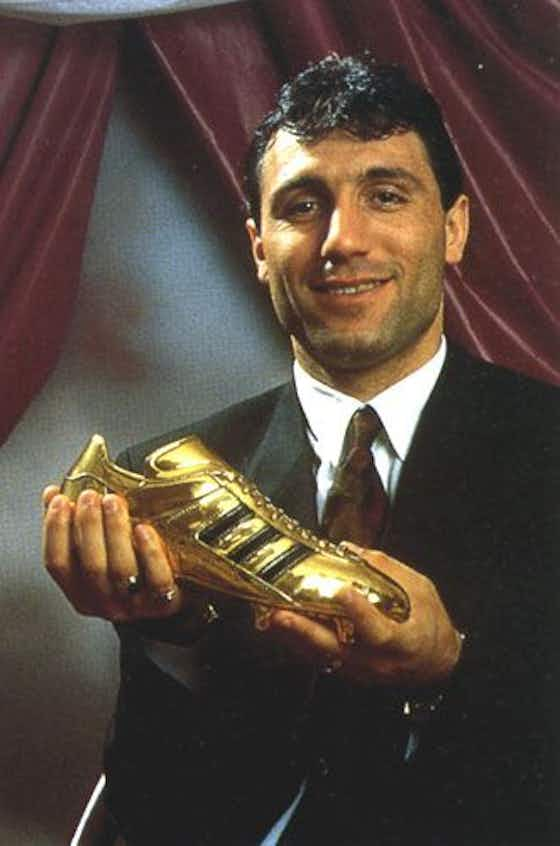
In another part of Europe, far far away from Sofia, in 1990 Johan Cruyff was wrapping up his second (and unsuccessful) season as manager of Barcelona. Vultures were circling around his position, sceptical of whether or not he could make a difference at the club. With Barça having won only three LaLiga trophies between 1960 and 1989, it was now or never for Cruyff as boss at Camp Nou.
“In Barcelona we play attacking and aggressive football,” Cruyff explained. “That’s because everyone around the team has an aggressive and offensive attitude. If there are star players who are not aggressive, how can you have an aggressive team? Impossible.”
Doesn’t this sound like a job for one of Europe’s most aggressive players at the time? Cruyff signed Stoichkov in the summer of 1990.
The Dutchman believed in a conflict model for team building and Stoichkov was the perfect bad-ass base on which his Dream Team could stand on.
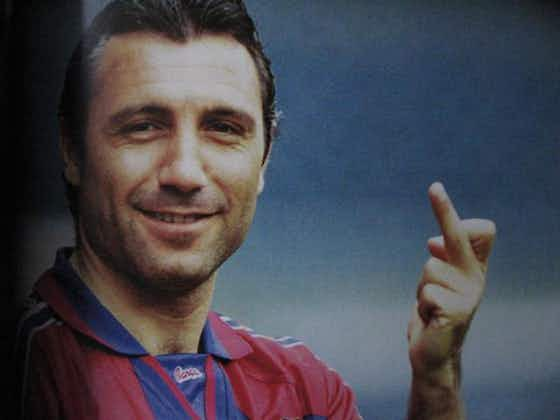
El Pistolero did not take long to make his LaLiga mark. In his first ever Clásico in the Spanish Super Cup, he stamped on the linesman’s foot and received a lengthy ban.
Classic Hristo.
Despite this early encounter Cruyff believed in the balance of Stoichkov’s technical brilliance and pure lunacy.
“Before Stoichkov came, we had a team of very nice people. But you can’t just have a team of very nice people,” Cruyff said following Stoichkov’s suspension. “You need someone like Stoichkov who is aggressive in a positive way. He goes for the ball and when he gets the ball he shoots at goal.
“There are other players who might wait and see if there is a more beautiful way of doing it, or maybe pass it but he just went ahead and hit it in.”
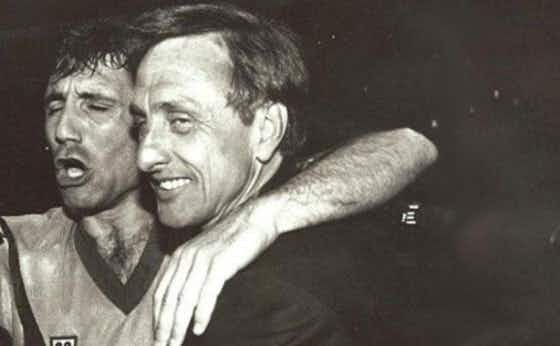
Stoichkov shot from the hips and had a brutal left foot that nobody knew how to deal with. He was a modern forward before modern forwards were able to play in any position across the attacking line.
Whether he was moving in from the wings or he was playing in a more traditional centre-forward position, the Bulgarian international had effectiveness and versatility like no other.
And the Barcelona boss couldn’t get enough of it.
Hristo allowed Cruyff to create a tactical set-up, which both needed and benefitted from Stoichkov’s ability to be everywhere.
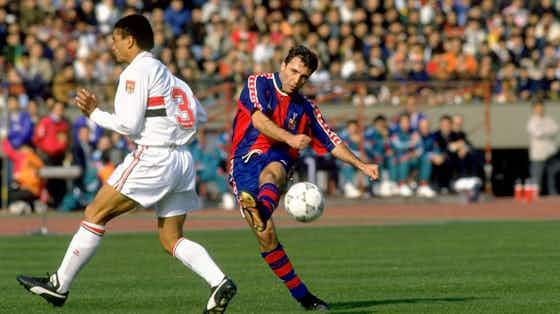
Interchanging positions between team-mates was a model that Cruyff himself had a hand in establishing during the 1970s and remains a part of Barça’s DNA to this day.
Barcelona became LaLiga champions in 1990/91, and Stoichkov’s 20 goals in his first season at the club made that feat reality.
The following season was to be the summit of Cruyff’s Dream Team. They defended their LaLiga title, won the Spanish Super Cup, and their first ever European Cup.
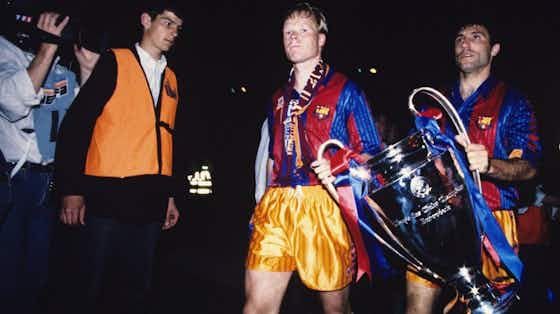
Stoichkov was in the heart of it all. Cruyff played him up front with Michael Laudrup right behind him. The sensational season saw Stoichkov net 22 goals in all competitions.
Then came the 1993/94 season, which brought Romário to Barcelona and all hell broke lose. Stoichkov and him quickly asserted themselves as the most feared attacking duo on the planet.
Both outstanding during the summer’s World Cup; Romário was Brazil’s best player and Stoichkov was USA 94’ top goalscorer. Together they were unstoppable.
“We just couldn’t handle the speed of Stoichkov and Romario,” Alex Ferguson said after Barça thrashed Manchester United 4-0 on 2 November, 1994. “The suddenness with which they attacked was a new experience.”
It takes something monstrous to leave Fergie shocked. Romário and Stoichkov created arguably the best partnership Barcelona had ever seen and certainly the most outrageous both on and off the pitch.
“They constantly battled to see who would get more goals,” remembers ex-Barcelona director Josep María Minguella, who represented both players.
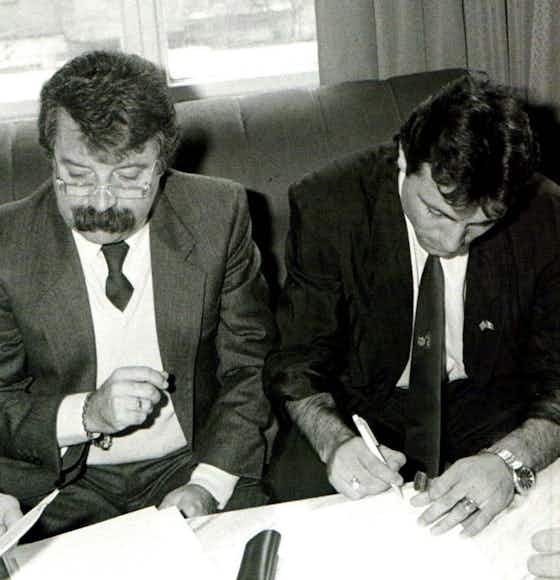
Both of them were furious when they were excluded from Cruyff’s starting XI. Outspoken, thundering, emotional, “when Stoichkov was on the bench,” one team-mate recalls, “he could start a fight with his own shadow. And when Hristo’s angry, he’s dangerous.”
“Hristo was peculiar,” says Minguella, whilst another team-mate described him simply as “a bit dense”.
But sadly it was not to last. Two months after the Man United hammering Romário was gone. Six months after that, so too had Stoichkov. Then Andoni Zubizarreta. Then Laudrup. Then Cruyff.
The trophies went, too, and it was three years before Barcelona won anything again.
The fact that they only played for one year is almost unbelievable, but they managed to become true Camp Nou legends in those 12 months.
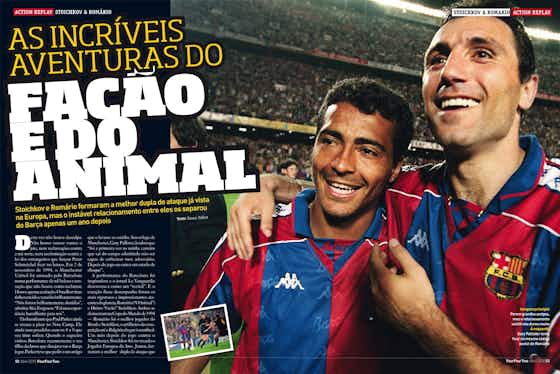
Each going their own way, never to speak again, Stoichkov and Romário’s break-up will always loom as the dagger that stabbed the Dream Team in an irremediable way.
Back in Bulgaria everyone still spoke of Hristo’s World Cup heroics from the previous summer, and he had already become a muse for jokes, cartoons and theatre sketches.
Many jokes are inappropriate to write as they revolve around Stoichkov’s way of communicating, aka swearing at every possible breadth. So here is the only one I know featuring no obsanity:
Stoichkov, Maradona and Pelé meet in a bar. Maradona said:
– One day ago, God told me I am the best footballer in the world.
Pelé shook his head and said:
– One hour ago, God told me that I am the best footballer in the world.
Stoichkov looked at both of them in near disgust and said:
– I don’t remember saying anything of the sort!
I can’t even.
Hristo’s name was on the tip of everyone’s tongue. His face was on posters in every café, bar and shop. His persona became enrooted in traditional folklore and social culture.
I remember taxi drivers had stickers of him all over their dashboards.
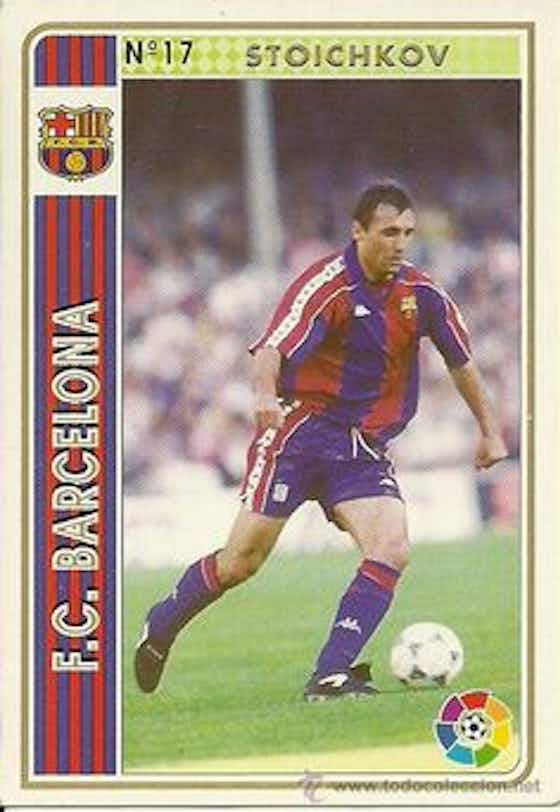
In 1995, Stoichkov joined Gianfranco Zola at Parma, but it turned out to be a miserable mistake.
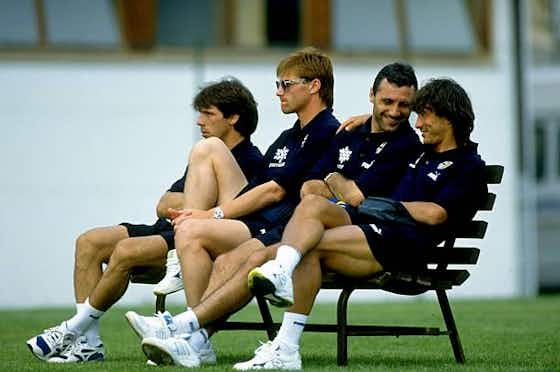
The tougher Italian defense was more apt to handle Hristo’s brutal attack, which provided just seven goals during the entire 1995/96 season.
Hristo’s greatest contibution in Italy was probably being there Gianluigi Buffon’s debut for Parma against an incredible Milan side.
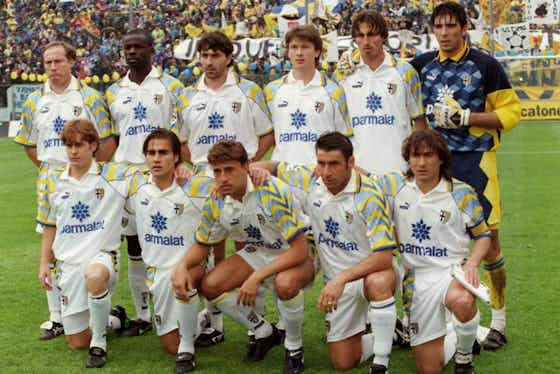
“In 1995 I was about to have my debut for Parma against Milan. I will never forget how I felt,” recalls Buffon who later became a Juventus and Italy legend. “‘Gigi, you just have to stop them like you do in training,’ Stoichkov whispered to me before the start of the match. So I thought, ‘Alright, Hristo, I will play in my debut as if it really is a training session’. He nodded, and luckily things turned out well. Game ended in a draw (0-0) and I made some great saves.”
But Stoichkov did not stick around in Italy for too long.
With Cruyff gone from Barcelona, new coach José Nunez re-signed Stoichkov in the summer of 1996 for just £2m, but his role at the club was reduced to being picked from the bench. Other options for Nunez included the likes of Ronaldo, Luis Figo, Giovanni and Antonio Pizzi.
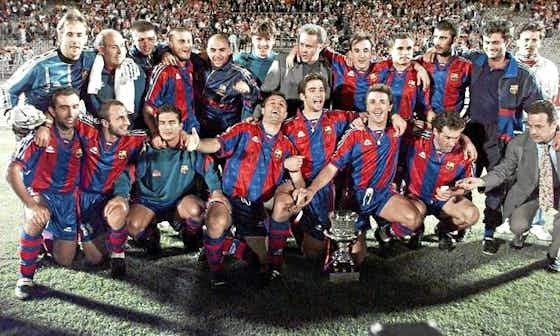
This was the beginning of the end for Hristo Stoichkov’s career. Even Barcelona’s new manager, the absolute gentleman that was Sir Bobby Robson, admitted it: “He’s gone, finished in many ways. He can’t run so how can he play? He’s all right for half an hour but long term, he’s finished.”
Fair enough.
El Pistolero left Barcelona to return to CSKA Sofia at the end of the 1997/98 season, just in time for France 98.
Stoichkov had stints in Saudi Arabia, Japan and USA, all of which brought more controversy than success, like the time he broke the leg of a DC United youth team player in training, but some things would never change.
He was investigated for an alleged assault on a journalist and also travelled to Africa to kill wild animals. Stella Reicheva, from the Bulgarian Animal Rescue organisation, said: “I respect Hristo Stoichkov and admire him as a player. For us he is really a legend, he gave us many moments of happiness and pride. But what he has done in Africa, is sad, barbaric.”
So in 2003, aged 37, Hristo Stoichkov called time on his football career, but nothing could stop him from being himself, whether he was on the pitch or not.
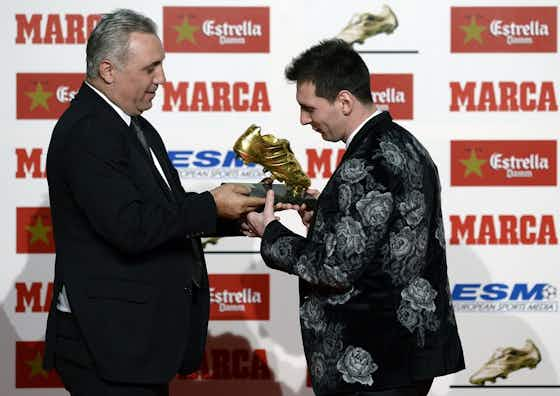
A Barça fan for life, he continued to embrace the Catalan cause, because he truly believes in it. He went on to (pretty unsuccessfully) manage the Bulgarian national team and story has it that he kicked a seven-year-old boy out of the training grounds because the kid had turned up in a Real Madrid shirt.
“Once they said they can only stop me with a pistol but today you need a machine gun to stop Messi”.
He also seems pretty fond of Messi – luckily his Spanish is better than his English. Check out this English interview Stoichkov gave; you deserve a medal if you can make out a full sentence:
It’s almost as good as that other gem that appeared from my nation, the famous ‘Ken Lee’ rendition of Mariah Carey’s song. But I digress.
This September, the famous No. 8 hosted ‘Stoichkov’s Show’, a match between ‘Barça Legends’ and ‘Stoichkov & Friends’ in Stara Zagora, Bulgaria.
Almost the entire Bulgaria squad of USA 94 showed up to play in Stoichkov’s let’s-get-together-we’re-getting-old match. Seeing them got me thinking about being a five-year-old kid watching their World Cup magic on (what was probably) our first colour television 23 years ago.
Many wrote Bulgaria off right at the beginning of the tournament but after we thrashed Greece and managed a magnificent (and absolutely unbelievable) win over Argentina, Bulgaria stood second in the group.
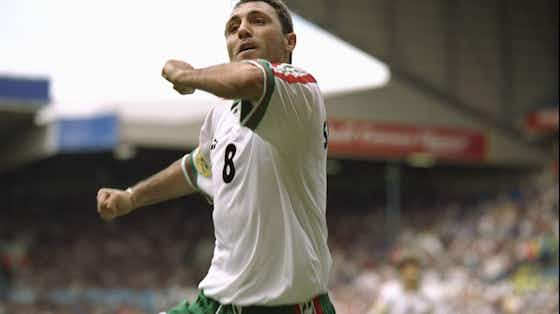
Then we somehow knocked out Mexico and the best was still to come. Over 71,000 fans turned up to watch reigning champions Germany, football’s most feared national side, who showed up looking so cocky and sure of themselves.
After Lothar Matthäus scored early in the second half everyone thought Bulgaria’s fairy tale was over. Everyone except Stoichkov.
He leveled with a beautiful strike followed by a historic diving header from Yordan Letchkov (now known as the Golden Forehead) just minutes later.
And Bulgaria achieved the unthinkable. We reached the semi-finals of the World Cup. That summer, Stoichkov proclaimed: “God is Bulgarian”.
After the game Letchkov revealed that the entire squad was drinking in classic Balkan style until the morning “and then went to beat Germany”.
“I remember that the FBI were providing our security services and every day for 45 days,” recalls Letchkov. “They would see us have a drink, smoke a cigarette, or go to a bar. When we left, they said they would miss us – and they weren’t joking.”
But Bulgaria never had a chance in the semi-finals against Italy. My dad would say, ‘Nobody would ever let such a small country win such a huge tournament!’
The 2-1 win over Germany is hands down the biggest moment of national pride in Bulgaria’s modern history.
On the evening of 10 July, 1994, 6.2 million people (from a population of 8.4 million) celebrated on the streets, parks and squares all around the country, something which had never happened before or since.
My dad and I were two of those millions. I drew the flag on an A4 piece of paper and joined the crowds of Sofia in chanting, crying, screaming, and smiling in pure joy. This is my first crystal clear childhood memory, one which I will cherish for the rest of my life.
And there is only one person who made it all happen.
There is only one … Hristo Stoichkov.






























































